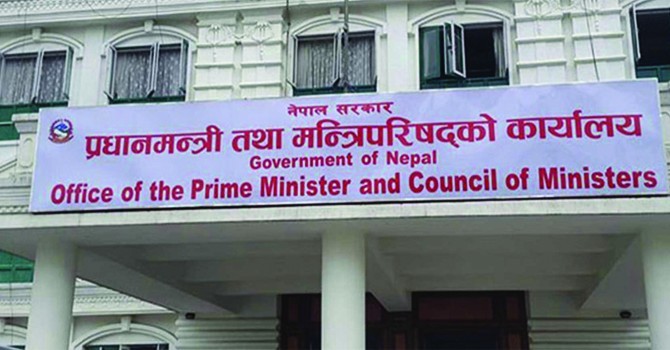To tap, or not to tap: Bill divides opinion

By Ranju Kafle
Kathmandu, Jan. 26: The provision of telephone tapping without court order in Clause 10 in ‘Nepal Special Service Bill-2076’ has not only divided the ruling and opposition parties but also generated huge public concern.
The reason of worry is special rights provided to the National Investigation Department under the Office of Prime Minister and Council of Ministers.
The bill which had been tabled in the National Assembly on December 15 states that the department can carry out surveillance, monitoring and interception of conversations, audio-visual and electronic codes of suspected person, organization and institution.
All the rights in the bill are for ‘Special Intelligence Task’ as the purpose of the bill is to establish and operate special intelligence service of the government. But will it be applied as claimed by the government or collected information would be misused unnecessarily to snoop the people is a matter of public concern now.
Lawmaker Radheshyam Adhikari said that audio-visual tapping with court order was both a requirement for the country and an international practice. “We know making surveillance or tapping call records with court order is natural, but we cannot accept it in lieu of court order,” he said.
Adhikari viewed that the bill will curtail people’s fundamental rights of secrecy if it is endorsed in its present form. He further said the state could monitor each activity of foreigners but not of the citizens due to the constitution.
Legal experts say that the bill provided ample room to question its intentions. Provisions to surveil individuals are against the spirit of the constitution, they say.
Advocate Tikaram Bhattrai said that there was space for suspecting the government in its intention because the bill directly allowed for tapping anyone’s conversation. “Before they start surveillance or any sort of tapping they need to get court order which is excluded in the draft,” he added. Bhattrai also viewed that the regulations could not be so secret as it’s mentioned in the draft.
But the government is advocating for the bill and urging to endorse it on time. Finance Minister Dr.Yubaraj Khatiwada had said that the bill was essential because it aimed to strengthen the country’s intelligence capabilities to counter threats of national security, sovereignty and integrity.
Similarly, Ram Narayan Bidari, a lawmaker from ruling NCP, said that the government was in need of the law to find out illegal spying activities happening against the country. “Intelligence agencies like RAW and CIA are interfering in our internal politics; we need to know what they are up to,” he said.
Content of Bill
Section 10 of the bill has a provision of information collection.
The sub-section 1 states: The department, in the course of information collection and counter-intelligence activities, can do surveillance, monitoring and interception of conversations, audio-visual and electronic codes and details–communicated by public media or other mediums–of suspected and being-monitored persons, organisations and institutions.
The next sub-section further explains that concerned investigation officers can request concerned officers, agencies or service providers to provide the details sought, and the agencies and service providers have to comply with the order.
The draft of Bill also states that the department can run covert operations and mobilise its ‘sources’ inside and outside the country to obtain information discussed above.
Criticism
The draft infringes on the constitutional right to freedom of expression, Information and privacy.
It violates people’s fundamental rights.
Unnatural rights given to the National Investigation Department.
Private information may be accessed any time from telephone tapping.
Recent News

Do not make expressions casting dout on election: EC
14 Apr, 2022
CM Bhatta says may New Year 2079 BS inspire positive thinking
14 Apr, 2022
Three new cases, 44 recoveries in 24 hours
14 Apr, 2022
689 climbers of 84 teams so far acquire permits for climbing various peaks this spring season
14 Apr, 2022
How the rising cost of living crisis is impacting Nepal
14 Apr, 2022
US military confirms an interstellar meteor collided with Earth
14 Apr, 2022
Valneva Covid vaccine approved for use in UK
14 Apr, 2022
Chair Prachanda highlights need of unity among Maoist, Communist forces
14 Apr, 2022
Ranbir Kapoor and Alia Bhatt: Bollywood toasts star couple on wedding
14 Apr, 2022
President Bhandari confers decorations (Photo Feature)
14 Apr, 2022











